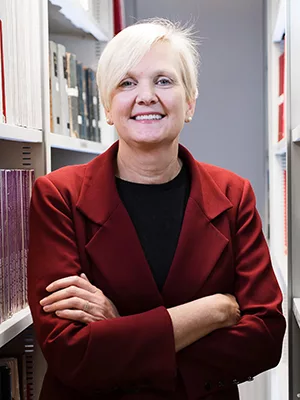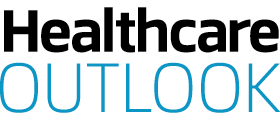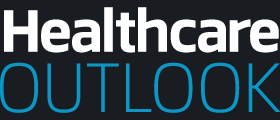Professor Nora Colton, Director of the UCL Global Business School for Health, explains how the institution is leading healthcare leadership and management reform.
Healthcare leaders have a lot to ponder these days on top of their organisation’s operations. The challenges range from accelerating scientific and technological advances, rising incidences of age-related diseases, and increases in noncommunicable diseases such as cardiovascular, diabetes, and other such lifestyle-related conditions.
As the sector absorbs more and more of an increasing percentage of international GDP, this has led to discussions about ways to rein in spending through innovation and technology. From policymakers to citizen groups, the calls for reform in our health system are growing.
STUCK IN THERAPEUTICS
This new thinking about the emerging health economy is not necessarily intuitive for those who have been educated in our universities and degree programmes, that remain very siloed and fixated on a hospital system of care.
Health systems are struggling with the transition from hospital-focused to population-centred care, which keeps people away from the very institutions our current leaders and managers have been trained to run – hospitals.
One of the reasons health systems are slow on solutions is that our healthcare leaders have often been matriculated and educated in an approach that focuses on therapeutics rather than early diagnostics and preventive care.
Novel solutions require different education and training that exchanges the historic silos of health and healthcare disciplines with interdisciplinary thinking and collaboration.
TEACHING THE WHOLE HEALTH ECOSYSTEM
The UCL Global Business School for Health (UCL GBSH) is the first business school solely dedicated to health and healthcare management and leadership. The basic premise of the school is that the health sector, given the new health economy, requires fresh approaches to the education and research of healthcare management and leadership.
The school teaches across the whole health ecosystem with interdisciplinary degree programmes that take a business and management perspective for addressing challenges in a collaborative environment of health economists, health informatics experts, digital and artificial intelligence (AI) scholars, and management and leadership professors looking to reimagine healthcare.
GROWING SECTOR SUFFERING STAFF SHORTAGES
Healthcare CEOs consistently rank staff shortages as their most pressing concern, according to an annual survey by the American College of Healthcare Executives. Worldwide, there is a soaring demand for clinical staff, while supply is not able to keep up. Clinical staff across many countries have been exiting the profession at a rate faster than medical schools can match, especially in the aftermath of the COVID-19 pandemic.
Moreover, healthcare workers report a very high rate of burnout and mental health issues compared to other sectors of the economy, leading to early exits, especially of key workers such as nurses. Consequently, you have one of the fastest-growing sectors reporting the biggest drop in the workforce relative to job opportunities.
The need for new management and leadership gets masked in all the focus on frontline clinical staff data. Yet, an equally serious problem for healthcare is the lack of succession planning for the next generation of leadership.
In fact, the baby boomer generation, who makes up most of our healthcare leaders and CEOs today, are retiring at a very steady rate, but what is surprising is that the Gen Xers who come after them are following suit.
UNDERSERVED MILLENIALS HOLD KEY TO PROGRESS
Gen Xers – particularly since the COVID-19 pandemic – have been retiring at an accelerated rate. In places like the US, they are part of what is referred to as the “great resignation”. Consequently, finding top leaders and managers for healthcare is becoming more difficult, as witnessed in the rising demand for MBA graduates in healthcare and US labour data, which shows the need for a 28 percent increase in healthcare managers by 2031.
Although this sudden loss of a generation is alarming, it could also be an opportunity for healthcare to embrace a new generation that might think differently. The future of healthcare leadership and management lies in millennials (27 – 42 years old). We have already seen that this generation has a very different take on what they need and want from their employers. They are curious, engaged, and want to make a difference in society.
These individuals are the first generation of digital natives and are ripe for embracing innovation, remote monitoring, telehealth, and other ways to bring healthcare to patients in their homes. However, competition for top performers will require flexible employers who can build remote teams and see that the future does not lie in the past. These next-generation healthcare leaders do not want to be restricted by policies and processes, but empowered by less hierarchy, more creative space, and further opportunities within healthcare organisations.
LEVERAGE POINT FOR LEADERSHIP
If healthcare organisations can step back from the precipice to see that it’s not all about hiring more of the same, but grasping those who will follow them, healthcare leadership could be the most significant leverage point for improvement.
The challenges of today’s healthcare workplaces are complex, and they require leaders who can visualise a different future by embracing new skills and upscaling others, as they adapt to the rapidly changing healthcare landscape.
Healthcare as a subject can no longer be shunned by business schools, as this area is now where those schools will have the most impact over the next 10 years. Emerging themes such as AI, data analytics, supply chain management, and climate finance point to a strong future in the sector.
While there is no doubt that healthcare has several workforce challenges, the crux of the matter may not be simply increasing the number of doctors and nurses, but also ushering in the next generation of healthcare leaders, via tactical business education, who will think and work differently.
About The Expert

Professor Nora Colton is the Director of UCL GBSH, the world’s first business school dedicated to health and healthcare topics. A health and development economist with extensive experience in change management and strategy, she also has a particular interest in change management as it relates to the healthcare sector and has designed and taught on healthcare management postgraduate degree courses, as well as health-related executive education and training programmes.























